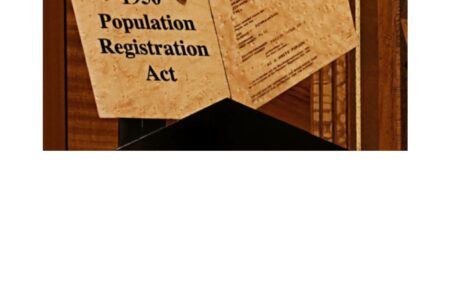We haven’t put racial lunacy behind us; it remains the dominant idea of our politics, the fundamental categories invented by the Population Registration Act having been embedded in ‘transformation’.
If ever you wanted proof of the power of a dominant idea in politics, it is what can only count as a bizarre entry in Hansard, the official record of parliament, in March 1990.
The date is telling. This was a month after F W de Klerk had led the National Party in taking its first plausible step towards winding back the apartheid clock by unbanning the ANC and the PAC, both barred from open politics 30 years earlier, and releasing Nelson Mandela.
As a consequence – even in the absence of anything near a start being made on a negotiated settlement – the country changed irrevocably, and dramatically. But the central law of apartheid, the Population Registration Act of 1950, still had a year and a bit to go before being repealed. And it was still very much a part of life in determining who was who.
If official racial classification was in itself the height of arbitrariness, its absurdity was borne out by the scope for reclassification, the process by which citizens, on applying and meeting whatever wildly incredible criteria were applied, could reinvent their ‘racial’ identity.
Thus, in the 12 months preceding March 1990 – according to that Hansard entry – there had been 1 229 successful reclassifications. But just how irrational it all was is bewilderingly evident from the fact that the successful candidates changed from “White to Cape Coloured; Cape Coloured to White; Cape Coloured to Chinese; White to Chinese; White to Malay; Malay to White; White to Indian; Malay to Chinese; Indian to Cape Coloured; Cape Coloured to Indian; Indian to Malay; Malay to Indian; Other Asian to Cape Coloured; Black to Cape Coloured; Cape Coloured to Black; Black to Other Asian; Black to Indian; Black to Griqua; Cape Coloured to Malay; Chinese to Cape Coloured; Indian to White; Malay to Cape Coloured; Cape Coloured to Griqua; and Cape Coloured to Other Asian”.
One hundred and six applications had been turned down. It is difficult to imagine on what logical grounds they failed.
I first came across this oddity in journalist Ben Maclennan’s irreplaceable anthology, Apartheid, The Lighter Side, published later in 1990, and replete with similar illustrations of the racial lunacy which South Africa managed to survive after a fashion, and put behind it.
The truth, however, is that we haven’t put racial lunacy behind us; it remains the dominant idea of our politics, the fundamental categories invented in the Population Registration Act having been unquestioningly embedded in what today is perversely called ‘transformation’.
It is the old ‘ordinary’ become the new.
I remember an argument once with a fellow conscript in the late 1970s who was so incensed at my liberal rejection of the idea of race having any meaning whatsoever that all he could manage was a menacing: ‘Morris, don’t talk kak … I’ll moer you!’
The atmosphere, then – the month, as it happens in which Steve Biko was murdered by the police – was not one that tolerated a rational analysis of the common humanity of the South African populace, or their common interests, which ultimately impelled the transition to democracy.
Four decades later, however, the conception of an indivisible society whose interests are inseparable and incapable of being delineated by race attracts a not dissimilar ideological hostility.
For far longer than many realise, the historical condition of South Africa has been a society in which no part can go it alone and succeed. Ours is an economic and social matrix that is inextricable and ultimately mutually beneficial. Even our genes reflect a robust hybridity – a phenomenon analysed by Stellenbosch historian Hans Heese in his book, Die Herkoms van der Afrikaner, 1657-1867, which determines that ‘the modern day Afrikaner is of 34% Dutch, 33% German, 13% French, 6,9% Coloured and 5% British origin’.
(For my own part, one indicator is unignorable: ‘Morris’ is a name that appears in the Cape Town telephone book in places as diverse as Sea Point and Khayelitsha, Constantia and Kalksteenfontein, and just about every suburb and township in between.)
Yet racial dividedness has always been useful to those who govern in our part of the world – and it remains as damaging an instrument of governance as ever.
Once again, the stakes are high.
As Frans Cronje, chief executive of the Institute of Race Relations, noted earlier this month, ‘the unambiguous rejection of race as the basis of government policy’ is central to resolving the ideological logjam responsible for South Africa’s dismal socio-economic performance – mounting unemployment, feeble growth, profoundly deficient schooling and other services (Eskom, not least), deep poverty, lowered hopes.
Cronje went on: ‘It is good and right for society to help those who are disadvantaged, particularly given our history, so that any child born in our country can rightly aspire to a middle class standard of living. But it must be done not on the basis of their race but on the basis of their disadvantage. Given patterns of poverty and inequality, the great majority of beneficiaries will be black – not because they are black but because they are poor.’
To make this argument, however, was ‘the most heretical thing you can say in our country today’.
Yet, Cronje warned, only if this argument was boldly made, and won, ‘does the ideological modernisation become possible that will in turn sweep away the raft of policies that stand between South Africa and its potential as a free, prosperous, and open society’.
It’s late in the day, and we really don’t need the Population Registration Act anymore. We should say so.
Morris is head of media at the IRR

